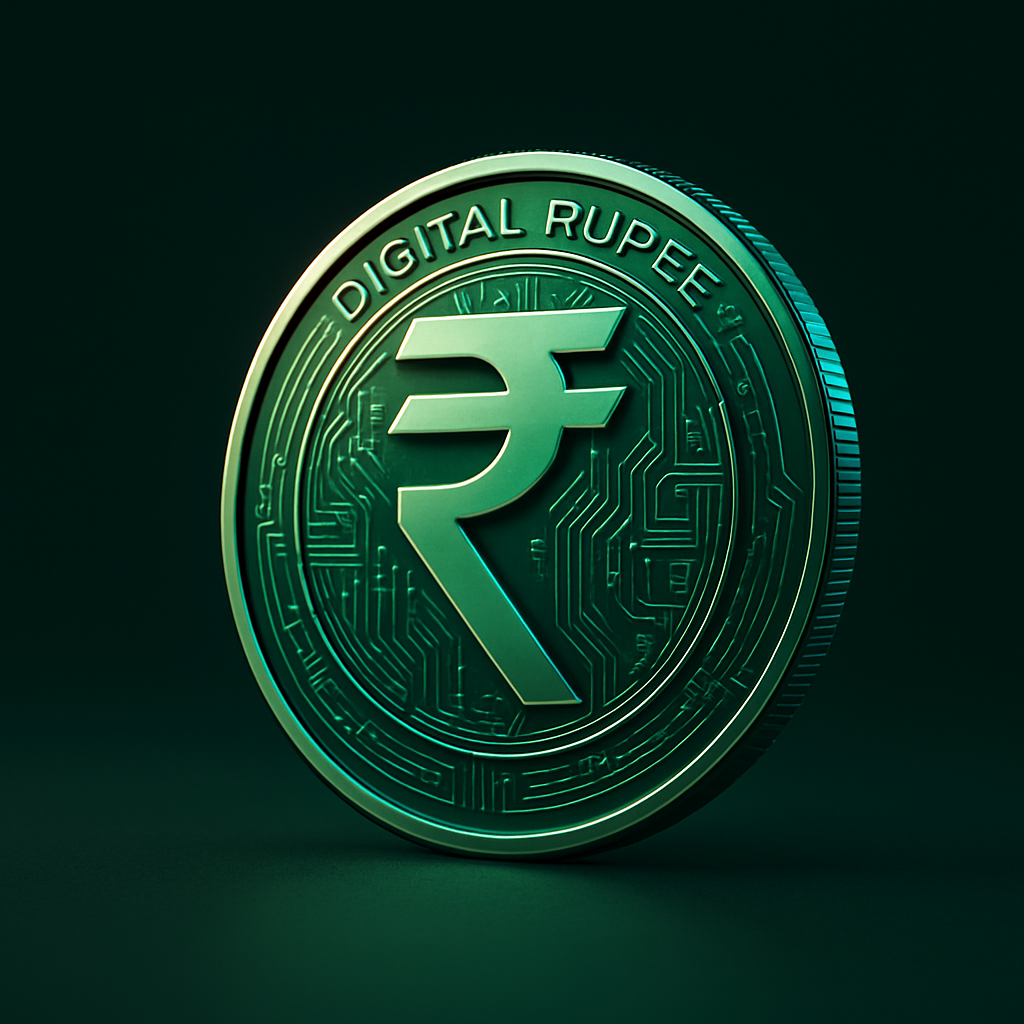Digital Rupee
Imagine getting paid, buying groceries, or sending money to family, all without touching a single physical note or coin. That’s the future Pakistan’s central bank is seriously building towards, and they’ve just brought in a heavyweight partner from Japan to make it happen. In a significant move, the State Bank of Pakistan (SBP) has tapped Tokyo-based blockchain experts, Soramitsu, to pilot a Pakistan CBDC – a digital version of the rupee – aiming for a test run before 2025 wraps up.
This isn’t just about jumping on a tech trend. Pakistan faces real, everyday financial headaches. Think about it: handling mountains of cash costs a fortune. Transporting it, securing it, counting it – it all adds up, draining resources. Plus, in vast rural areas, banking access remains frustratingly low. Many people, especially workers getting paid wages, rely solely on cash because traditional banks are just out of reach. This financial exclusion holds back individuals and the wider economy.

Enter Soramitsu. Why them? They aren’t newcomers to the digital currency game in Asia. They’re the tech brains behind Cambodia’s successful Bakong system – widely seen as one of the region’s most effective central bank digital currencies. That experience is pure gold for Pakistan’s ambitions. This project, significantly funded by Japan’s Ministry of Economy, Trade and Industry, is Soramitsu’s biggest challenge yet: bringing a Pakistan CBDC to life for a nation of 250 million people with a $400 billion economy.
Related This: https://financialgoals.online/pakistan-crypto-regulations/
What Problems Will the Pakistan CBDC Solve?
The goals are clear and practical:
- Slash Cash Costs: Moving away from physical money could save the economy billions currently spent on printing, transporting, and securing cash.
- Bank the Unbanked: A digital rupee accessible via a basic smartphone app could bring millions in rural and underserved communities into the formal financial system for the first time. No brick-and-mortar bank branch needed!
- Modernize Money: It paves the way for faster, cheaper, and more transparent digital payments for everyone – businesses, individuals, and the government itself.
Soramitsu’s Secret Sauce: Experience and Innovation
Soramitsu isn’t just replicating what they did in Cambodia. They’re pushing boundaries. One of the most exciting features being developed for the Pakistan CBDC pilot is offline functionality. Yes, you read that right. They’re working on tech that would allow people to make digital rupee transactions even without a constant internet connection. This is a potential game-changer for regions where connectivity is patchy or unreliable. Imagine a farmer selling produce at a local market using digital cash, even if the signal is weak. This innovation alone could make Pakistan’s pilot a blueprint for other developing nations.
Pakistan’s Broader Digital Money Ambitions
The CBDC pilot isn’t happening in a vacuum. It’s part of a much bigger push by Pakistan to embrace the future of money. Earlier this year, the government-backed Pakistan Crypto Council was formed. While distinct from the central bank digital currency, it signals a national interest in exploring digital assets. This council is actively promoting understanding of virtual assets and even investigating possibilities like using surplus energy for bitcoin mining.
SBP Governor Jameel Ahmad has been vocal about the central bank’s commitment. Back in July, he confirmed they are actively finalizing crucial legislation to regulate virtual assets and preparing for the imminent CBDC launch. He stressed the focus is on “building up our capacity on the SBP digital currency” and establishing a solid regulatory foundation for the future. While cryptocurrencies aren’t yet officially licensed in Pakistan, the SBP clarified they aren’t illegal either. They are, however, urging financial institutions to hold off on dealing with them until clear rules are in place.
Why This Partnership Matters
The collaboration between the State Bank of Pakistan and Soramitsu is a major vote of confidence in the potential of central bank digital currencies to solve real-world problems. It leverages Japanese technological expertise and funding to address Pakistan’s specific economic challenges. By drawing on the proven success of the Bakong system and innovating with features like offline use, this Pakistan CBDC pilot has the potential to be truly transformative.
The Road Ahead
The next couple of years will be crucial. Designing a digital rupee that is secure, easy to use for everyone (even those new to smartphones), resilient, and genuinely useful is no small feat. The pilot phase will be all about testing, learning, and refining. If successful, it could dramatically reduce the cost of handling cash, bring millions into the financial fold, and position Pakistan as a leader in digital currency adoption among emerging economies. The journey towards the digital rupee has officially begun, and the world will be watching closely.



